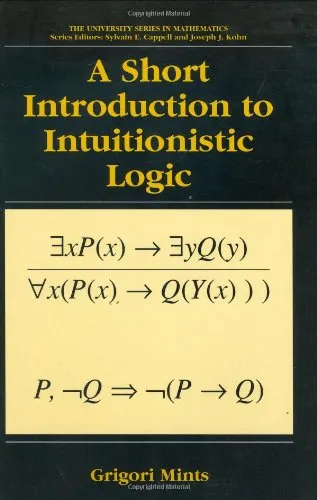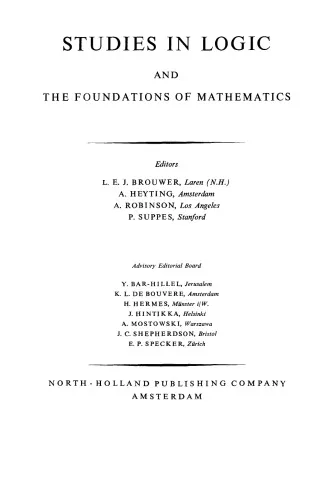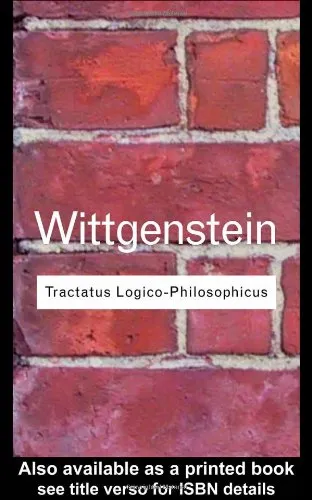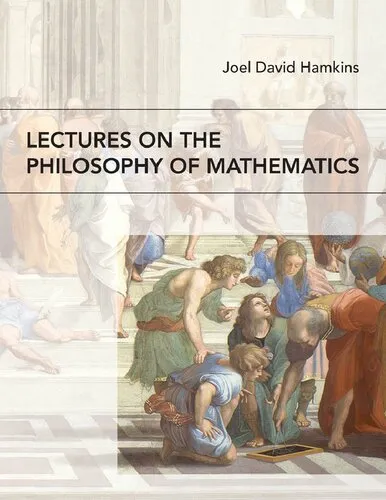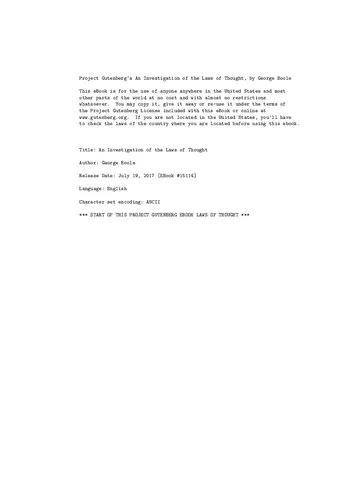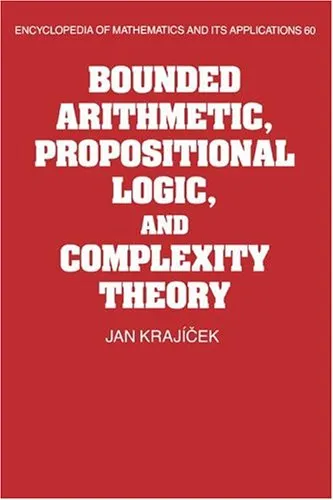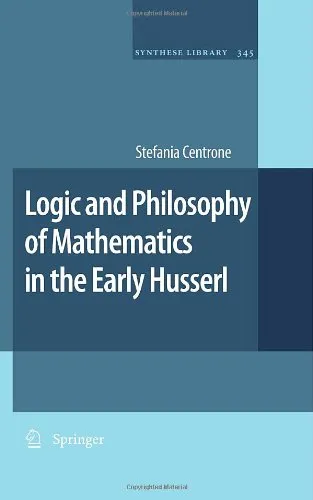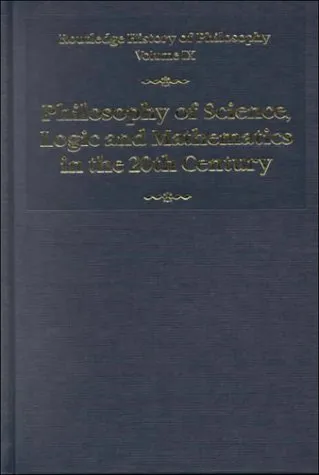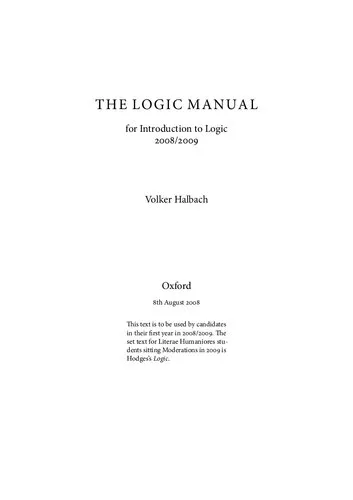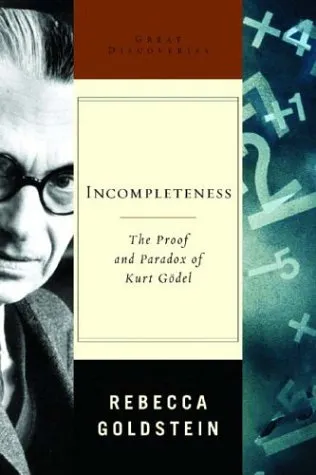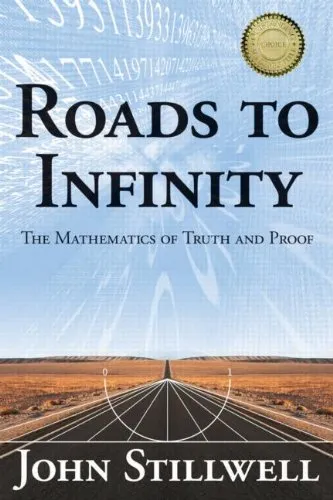Short Introduction to Intuitionistic Logic
4.0
Reviews from our users

You Can Ask your questions from this book's AI after Login
Each download or ask from book AI costs 2 points. To earn more free points, please visit the Points Guide Page and complete some valuable actions.Related Refrences:
Welcome to an in-depth overview of the book 'Short Introduction to Intuitionistic Logic' by Grigori Mints. This text serves as a guiding beacon for those delving into the world of intuitionistic logic, offering a comprehensive exploration of its principles, methodologies, and philosophical implications.
Detailed Summary
In 'Short Introduction to Intuitionistic Logic', Grigori Mints provides an accessible yet profound insight into the nuances of intuitionistic logic—a branch of logic that emerges from the constructive approach to mathematics and philosophy. Unlike classical logic, intuitionistic logic does not accept the law of the excluded middle, which states that every proposition is either true or false. Instead, it requires evidence or constructive proofs. The book is organized to guide readers through the foundational concepts, beginning with the historical emergence of intuitionism and its divergence from classical logic. The initial chapters introduce Brouwer and Heyting, the pioneers of this logical viewpoint, and establish the core principles of constructivism in mathematics.
As the book progresses, Mints elucidates the technicalities of intuitionistic logic, including its syntax and semantics. Key elements such as Kripke models are explored, providing readers with tools to understand how truth values may evolve across possible worlds. The author also addresses the role of proof theory and discusses how intuitionistic logic's emphasis on proof transformations contributes to a deeper understanding of computational processes. Furthermore, the book explores applications in computer science, especially regarding programming languages and type theories, where intuitionistic logic underpins functional programming paradigms.
Key Takeaways
- Intuitionistic logic is fundamentally different from classical logic, rejecting the principle of the excluded middle.
- It emphasizes constructive proof, meaning that to assert that something is true, one must be able to construct a proof of its truth.
- Kripke models play a significant role in the semantics of intuitionistic logic, providing a framework for understanding how truth values can change.
- Intuitionistic logic has significant implications in computer science, influencing areas such as type theory and programming language design.
- The book provides a balanced approach, making complex ideas accessible to both novices and those with a background in logic.
Famous Quotes from the Book
“To understand intuitionistic logic, one must first shed the comfort of absolutes in truth—its embrace requires an acceptance of truth as a construct of evidence and proof.”
“In the world of intuitionistic logic, every proposition holds the potential to be true, yet its truth is only blossomed by the light of constructive proof.”
Why This Book Matters
This book is significant for several reasons. It introduces readers to a form of logic that challenges traditional views, fostering a more nuanced understanding of truth and reasoning. This paradigm is particularly relevant in the contemporary context, where computer science and mathematics are increasingly interconnected. The nature of proof and constructivity in logic informs how we develop algorithms and code, shaping the evolution of technology and computational theory. In addition, 'Short Introduction to Intuitionistic Logic' is a testament to Grigori Mints' ability to distill complex topics into approachable content, making it an essential resource for students, educators, and professionals alike.
For those interested in the philosophical underpinnings of mathematics, the book provides a compelling narrative about the development of logical thought. It serves as a catalyst for discussions about the foundations of knowledge and the nature of proof, encouraging a reflective approach to understanding and applying logic. Whether you are an aspiring logician, a software engineer, or simply a curious reader, this book offers valuable insights and fosters an appreciation for the intricacies of intuitive thought.
Free Direct Download
You Can Download this book after Login
Accessing books through legal platforms and public libraries not only supports the rights of authors and publishers but also contributes to the sustainability of reading culture. Before downloading, please take a moment to consider these options.
Find this book on other platforms:
WorldCat helps you find books in libraries worldwide.
See ratings, reviews, and discussions on Goodreads.
Find and buy rare or used books on AbeBooks.
1384
بازدید4.0
امتیاز0
نظر98%
رضایتReviews:
4.0
Based on 0 users review
Questions & Answers
Ask questions about this book or help others by answering
No questions yet. Be the first to ask!
